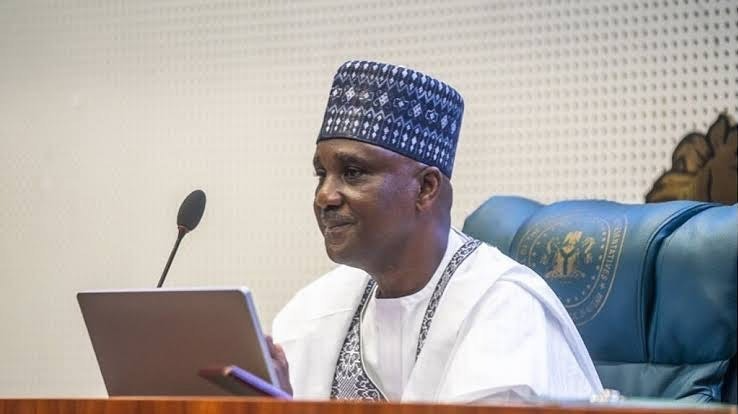The speaker, House of Representatives, Rt. Hon. Abbas Tajudeen has identified poor salaries and remuneration of workers as recipe for corruption.
Tajudeen said this at the Independent Corrupt Practices and Other Related Offences Commission (ICPC), Policy dialogue on corruption, social norms and behaviour change in Nigeria in Abuja.
The speaker tells me that this is why the National Assembly is working seriously to review the minimum wage and give Nigeria workers something better.
Also, the chairman of the ICPC, Bolaji Owasanoye said: “The timing of this Policy Dialogue on Corruption, Social Norms and Behaviour Change in Nigeria, could not have come at a better time than now when the foundation of our social values and norms has become seriously threatened.
“In actual fact, a lot of changes are taking place across the wider Nigerian society. But more worrisome to me, is the emergence and pervasive spread of corruption-inducing social norms across all ethnicities and religious divides.
Despite widespread cultural and religious perception of corruption as a negation of societal values, a survey carried out by ACAN-ICPC in 2020 revealed that corruption among public servants is enabled by community ambivalence towards the proceeds of corruption.
“Corruption is therefore fueled by community expectation of people in office. There is for example a general belief that groups, networks and communities expect the holder of an office to confer benefits from (or of) the office on members of the community regardless of whether (a) the benefits are corrupt practices in themselves (e.g., nepotism), or (b) if the benefits come from proceeds of corruption (e.g., embezzlement).”
Also speaking , Professor Toyin Falola tells me that “Nigeria has been grappling with the pervasive problem of corruption for a considerable period, and its consequences have had far-reaching effects on its development, governance, and society.”
He also said, “to effectively combat corruption, it is crucial to have a combination of public awareness, strong institutions, and the active participation of religious and community leaders. These three elements work together to create a powerful force against corruption, ensuring that it is acknowledged and actively fought against. Public awareness plays a vital role in addressing corruption. When people are informed and educated about the detrimental effects of corruption on society, they become more vigilant and less tolerant of corrupt practices. Awareness empowers people to stand against corruption and demand accountability from those in power. Robust institutions are another key component in the fight against corruption. These institutions, such as anti-corruption commissions and independent judiciary systems, provide the necessary investigative framework.
“To tackle the complex issues of social acceptance, tolerance, and collaboration in corrupt practices, it is crucial to prioritise education, transparency, accountability.”
We’ve got the edge. Get real-time reports, breaking scoops, and exclusive angles delivered straight to your phone. Don’t settle for stale news. Join LEADERSHIP NEWS on WhatsApp for 24/7 updates →
Join Our WhatsApp Channel










